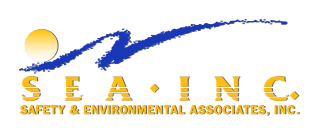NEW EPA PROPOSAL WILL CHANGE CLEAN WATER ACT REPORTING REQUIREMENTS FOR SEA CLIENTS

New changes to the Clean Water Act reporting requirements will affect many businesses throughout the nation. It is important to understand how these changes will affect you and your company to ensure that you remain compliant with EPA standards.
The EPA’s proposed changes to Clean Water Act reporting requirements require those firms still submitting paper-based NPDES reports to convert to electronic reporting. According to the Agency, the switch will improve compliance with Clean Water Act specifications as well as facilitate improved protection of U.S. waters. However, for those businesses and industries that are accustomed to filing written reports, the switch to electronic reporting will necessitate costly system changes.
SEA Inc., a Little Rock-based environmental health and safety service company, makes it easy and economical to comply with EPA regulations. SEA provides complete environmental services, including planning, training and automated reporting.
Benefits of the Proposed New Clean Water Act Reporting Requirements
A total of 46 states have EPA authorization to administer the NPDES – National Pollutant Discharge Elimination System. Once reporting is completely digitized, community members will be able to look up information on discharges by local industries and facilities that impact regional environmental health.
EPA projects that the proposed e-reporting rule will save a significant amount of money since it will eliminate the need for government workers to manually enter the data that they receive in written form. Instead, NPDES participants will submit it directly into the system. This will also ensure that this information becomes available more quickly to the public.
While these improvements are beneficial, a change in reporting methods will represent difficulties for those municipal systems, industries and other facilities working within the NPDES framework. The rule would become effective one year after it becomes final, providing a relatively small window for participants to comply with new Clean Water Act reporting requirements. Advanced planning is critical, and SEA is a leading environmental service provider with the specialized knowledge to help organizations plan for and complete the conversion as smoothly as possible.
Planning and Training for the Proposed Changes
Although EPA is already planning webinars to help bring NPDES organizations up to speed with the new rule, the experts at SEA believe that hands-on training offers a far better option for those NPDES-permitted municipalities, businesses and industries that must make changes to meet the new reporting requirements. That is why SEA offers comprehensive training, planning and consulting, not only for NPDES compliance but for such programs as Hazardous Waste Management, RCRA Compliance, DOT, SPCC, and Hazardous Materials Management as well. SEA training instructors have updated industry knowledge and the ability to convey that information in an understandable format to managers and workers who deal with the handling and disposal of hazardous materials or industrial waste.
SEA Services Make Compliance Simple
SEA also provides full e-reporting services to organizations that lack the appropriate infrastructure to effectively convert from paper-based communications to the new proposed Clean Water Act reporting requirements. Because failure to comply with NPDES requirements may result in significant penalties, entrusting SEA’s integrated environmental reporting services to effectively meet state and federal requirements is the logical choice. See a full list of OSHA, EPA, and other regulatory standard training courses offered here at SEA Inc.

Valentine’s Day is about commitment—and in manufacturing, one of the most meaningful commitments an organization can make is to support workplace safety. Safety isn’t a one-time initiative or a binder on a shelf. It’s a system that requires attention, reinforcement, and ongoing support. In fast-paced manufacturing environments, even strong safety programs can weaken over time without adequate resources.

f you think PFAS regulation is someone else’s problem, think again. The regulatory environment around per- and polyfluoroalkyl substances is shifting rapidly, and safety, environmental, and operations teams are squarely in the crosshairs. Rather than scrambling when the deadlines arrive, your best strategy is to act early.

Halloween might be the season for ghost stories and haunted houses, but for safety and environmental professionals, the real nightmares happen at work. From unseen hazards to data disasters, these frights are all too real. At SEA, we help EHS managers conquer their fears — and their risks — with smart, proactive solutions that turn horror stories into success stories.
